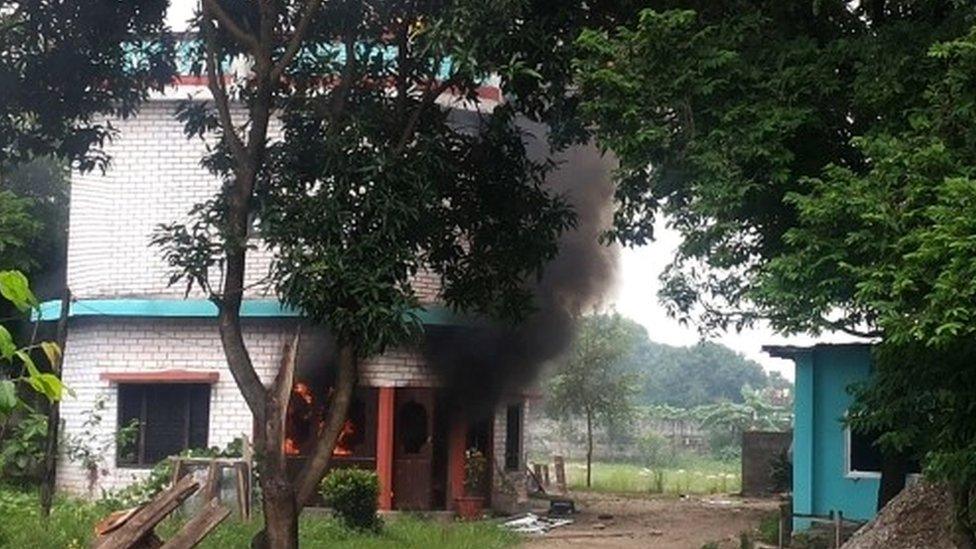Nepal's President Yadav approves secular constitution
- Published
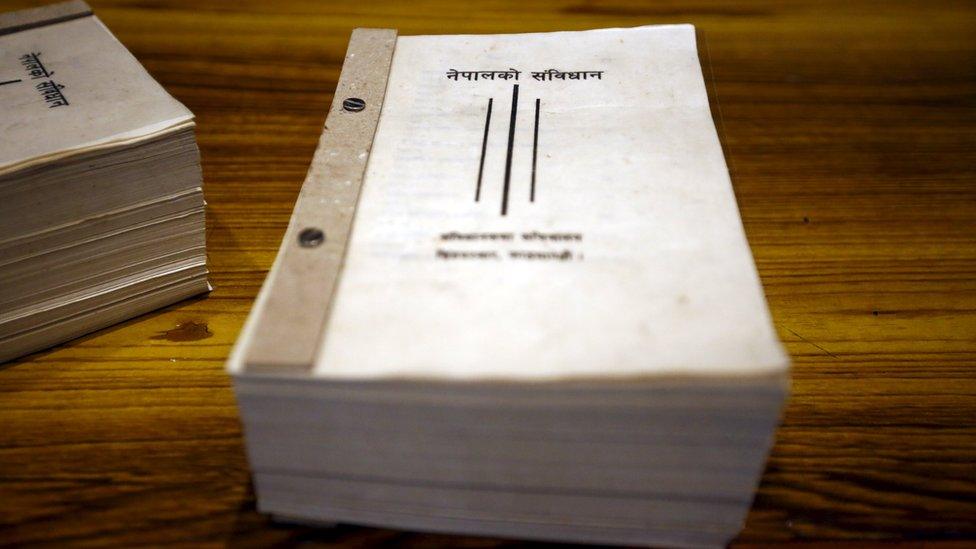
The new constitution was agreed by parliament last week
Nepal has formally adopted a new constitution, nearly a decade after the country ended a long-running civil war.
Members of parliament applauded as President Ram Baran Yadav signed the document in the capital Kathmandu.
Earlier on Sunday police fired on protesters in the south, where some members of ethnic minorities oppose the constitution. At least one person died.
The document defines the majority Hindu nation as a secular republic divided into seven federal provinces.
It was agreed by parliament last week, after years of political wrangling.
Why Nepal's new constitution is controversial?
"We believe that the adoption of the new constitution has now opened the path for development of the country," Mr Yadav told the assembly.
Firecrackers went off in Kathmandu in celebration, and some Nepalese spoke of their relief that the country could now move on.
Student Shyam Sharma told the Associated Press news agency that he hoped politicians could "focus on other important issues like developing the country, improving the economy".
But others across the country are not happy.
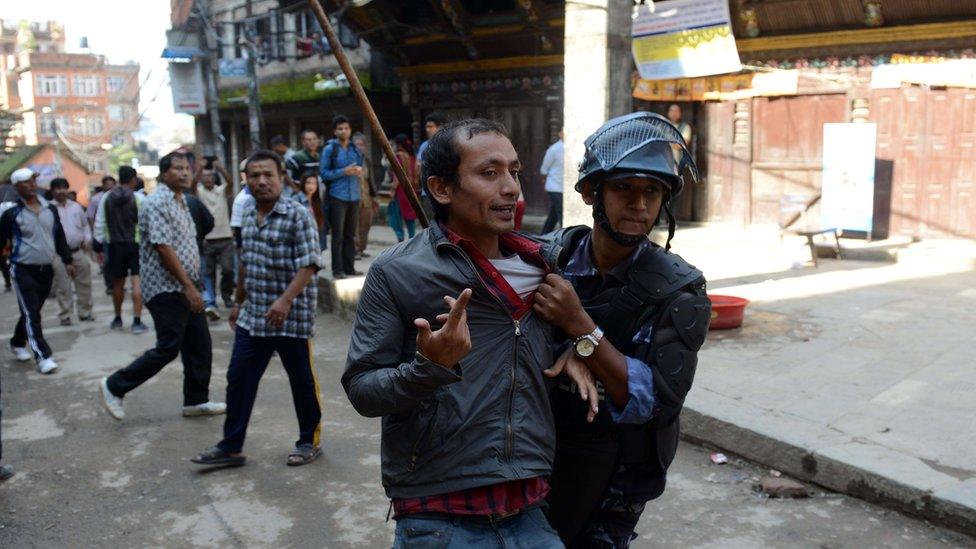
A protest in Kathmandu on Sunday was quickly broken up
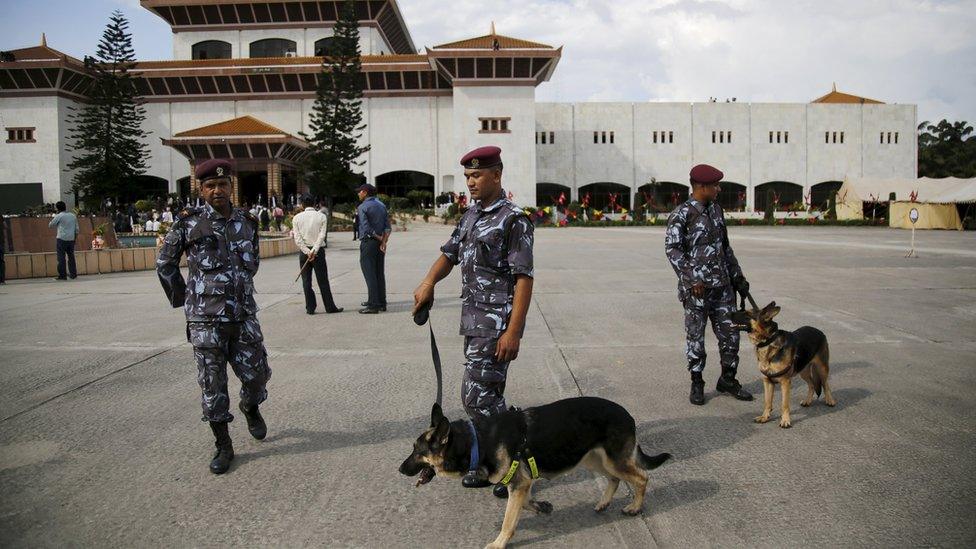
Security was high ahead of the formal promulgation of the constitution
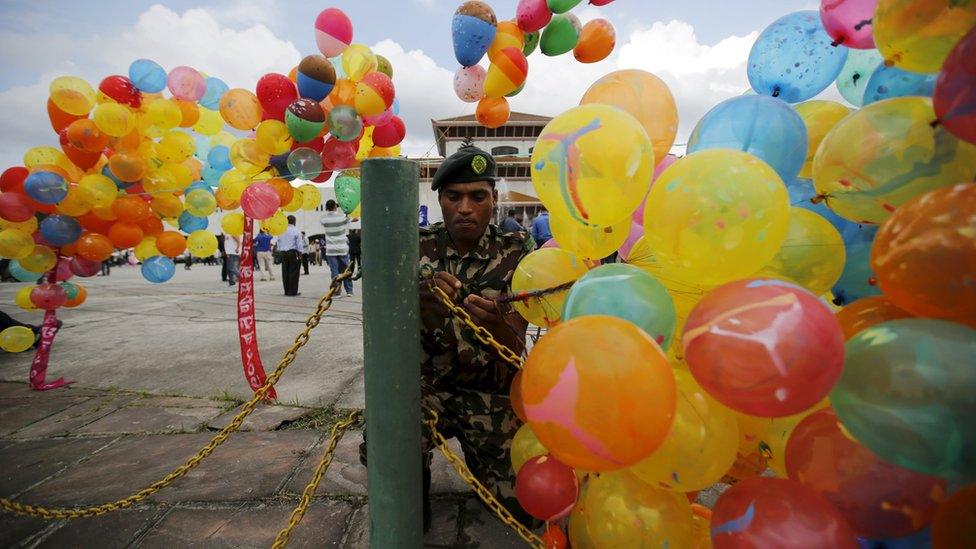
But there were celebrations in and around parliament to mark the historic event
Before the signing, clashes broke out between the security forces and a crowd of Madhesi people who had defied a curfew to demonstrate in the town of Birgunj, Parsa district, in southern Nepal.
One person was killed and a number of people were injured.
"They attacked with stones and glass bottles. Some of the security forces have been injured as well as the demonstrators. The situation here is tense," Parsa's chief district officer Kesheb Raj Ghimire told the AFP news agency.
At least 40 people have been killed amid protests by the Madhesi and Tharu ethnic groups in the south in recent weeks.
They are concerned that changes to the borders and election rules will further marginalise them.
The demand for a new charter was raised by Maoists rebels whose 10-year civil war ended with a peace deal in 2006.
In 2008, the Maoists won elections to a constituent assembly, leading to the abolition of the 240-year-old monarchy. But amid squabbling, the assembly failed to draw up a new constitution.
- Published19 September 2015
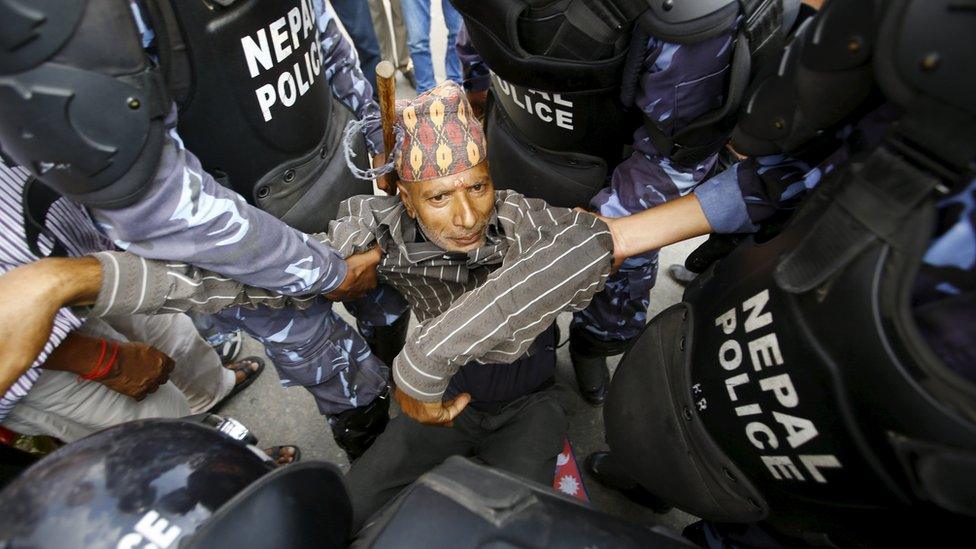
- Published15 July 2024
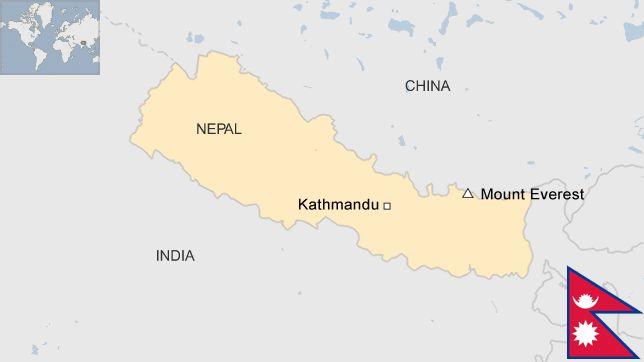
- Published25 August 2015
